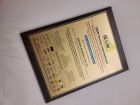Unlocking the Legacy of Henrietta Lacks: A Must-Read for Research Administrators

In the world of scientific research, the story of Henrietta Lacks stands as a towering testament to the complex interplay of ethics, race, and medical discovery. Rebecca Skloot's book, "The Immortal Life of Henrietta Lacks", unravels this narrative with a compelling mix of investigative journalism and rich storytelling. For research administrators, this narrative is more than a book; it's a crucial framework for understanding the past and shaping a more ethical future in medical research.
Henrietta Lacks was a Black woman whose cancer cells were taken without her knowledge or consent in the early 1950s. These cells, known as HeLa cells, became one of the most important tools in medicine, vital for developing the polio vaccine, cloning, gene mapping, and much more. Yet, Henrietta's family remained in the dark for decades about the scientific breakthroughs her cells facilitated, living without the benefits of the advances their mother's cells contributed to.
Bad Blood: Lessons in Ethics and Accountability for Research Administrators

Holy Plaque! Amanda Breeden Receives Award for Operational Excellence

Recently, I attended, presented, and chaired the Operational Excellence panel at the 6th European Conference on Industrial Engineering and Operations Management. More info on the IEOM Society here. As an added surprise, I also received an award for Operational Excellence.
Amanda Breeden named one of top 50 thought leaders in operational excellence for 2023

10 Ways to Improve your Work Life with Standard Work
_w140_h140/1(2)_02101038.jpg)
